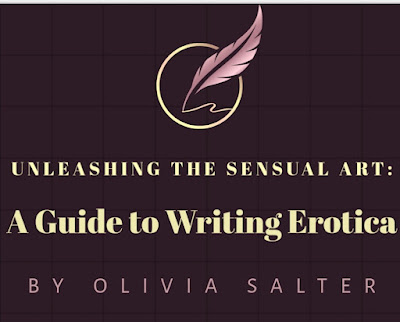by Olivia Salter
Erotica, a literary genre that explores human sexual desire, is an art form that has captivated readers throughout history. Writing erotica requires a delicate balance of sensuality, emotion, and narrative prowess. In this comprehensive guide, we will delve into the world of writing erotica, exploring tips, techniques, and considerations to help you craft engaging and evocative stories. Whether you aspire to titillate your readers or venture into this genre for personal satisfaction, this article aims to equip you with the necessary tools to effectively convey desire, passion, and intimacy.
1. A Deep Dive into Character Development:
Creating fleshed-out and relatable characters is crucial in erotica. Readers want to connect on a personal and emotional level with the protagonists. Develop multifaceted characters, exploring their desires, fears, and vulnerabilities. Delve into their backgrounds, giving them unique quirks and personalities that will resonate with your audience.2. Establishing the atmosphere:
Sensual environments immerse readers in the erotic experience. Set the scene by painting vivid details that appeal to the senses. Explore the mood, lighting temperature, and surroundings, as well as the emotions and anticipation of the characters. This will help create an alluring atmosphere that pulls readers into the story.3. Crafting engaging plotlines:
Erotica is not solely about graphic scenes; it should have compelling plots that drive the narrative forward. Develop conflicts, obstacles, and tension to keep readers engaged. Use the power of anticipation to heighten desire and build momentum throughout the story. Remember, a well-structured plot will anchor the erotic elements and provide a satisfying framework for readers.4. Balancing Sensuality and Emotion:
Erotic writing is a delicate interplay of sensuality and emotional connection. Infuse your text with powerful emotions that resonate with readers. Respectfully explore the depths of passion, desire, and love. Aim to evoke a rollercoaster of emotions, from excitement and vulnerability to tenderness and ecstasy.5. Utilizing Evocative Language:
Word choice is integral to writing erotica. Select words that enhance sensuality and arouse desire while avoiding clichéd or overly explicit terms. Metaphors, similes, and sensual descriptions can elevate the writing by invoking imagery that heightens the sensory experience. Experiment with different styles and techniques to find your unique voice.6. Consent and Boundaries:
Responsible erotica takes into account the importance of consent and boundaries. Ensure that all sexual encounters portrayed in your writing are consensual and respectful. Developing authentic communication between characters will not only add depth to the story but also reinforce positive attitudes towards healthy sexual relationships.7. Revision and Editing:
After completing the first draft, revising and editing are essential. Ensure consistency, clarity, and coherence in your writing. Proofread for grammar, punctuation, and spelling errors. Revisit scenes to check for flow, rhythm, and pacing. Solicit feedback from trusted friends or fellow writers to gain fresh perspectives and refine your work further.In conclusion, writing erotica is an art that requires skill, sensitivity, and a deep understanding of human desires. By immersing readers in sensuality, creating emotionally engaging characters, and crafting compelling plots, you can create captivating stories that explore the richness of human sexuality. With practice, revision, and an open mind, you can master the art of writing erotica and leave readers captivated, enticed, and eager for more.

